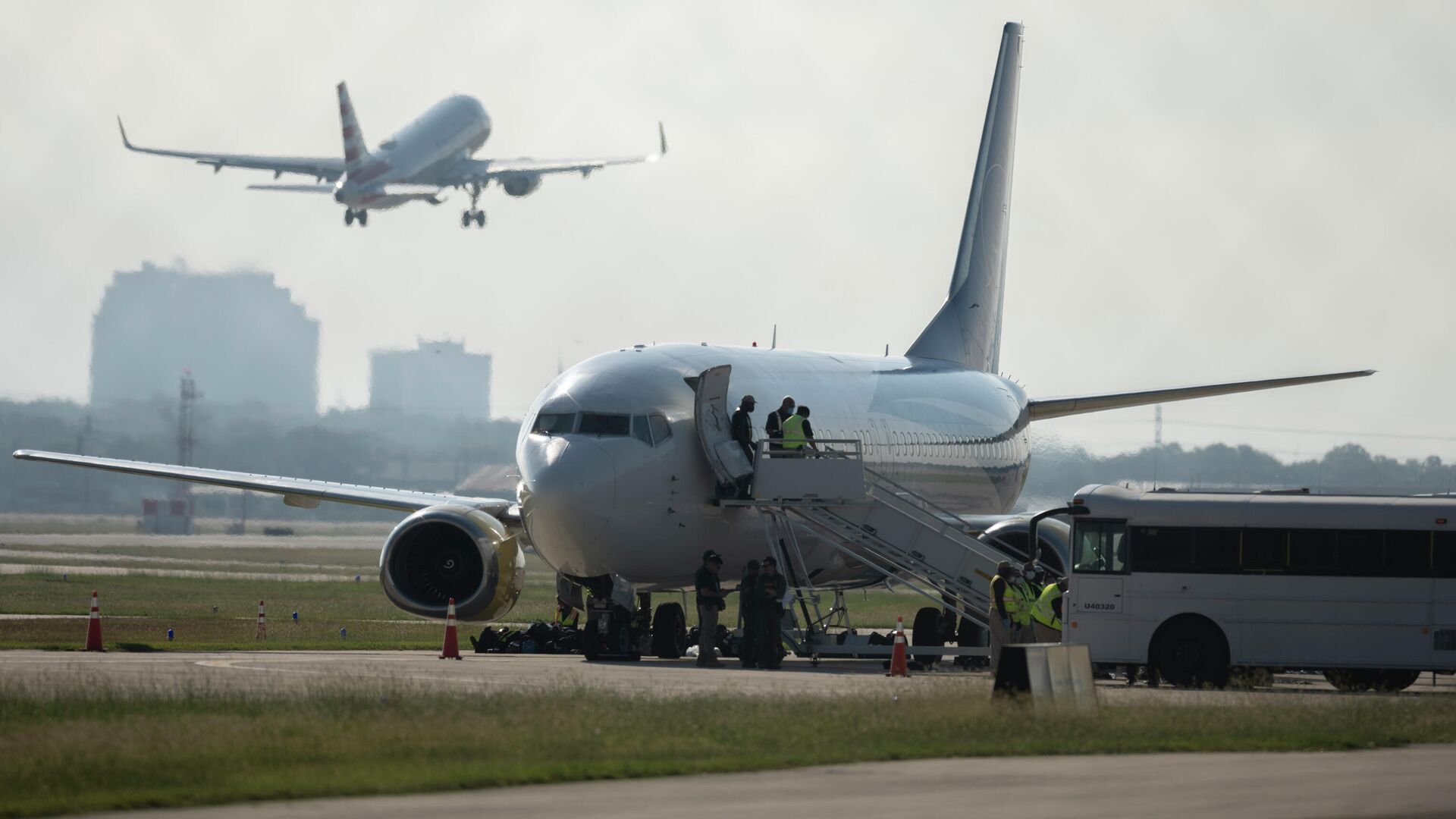https://sputnikglobe.com/20230110/study-us-children-residing-near-airports-experience-higher-exposure-to-lead-1106195006.html
Study: US Children Residing Near Airports Experience Higher Exposure to Lead
Study: US Children Residing Near Airports Experience Higher Exposure to Lead
Sputnik International
Children in the United States who live in proximity to airports have elevated lead levels in their blood, as an estimated 170,000 piston-engine aircraft still use tetraethyl lead nationwide.
2023-01-10T12:47+0000
2023-01-10T12:47+0000
2023-01-10T12:47+0000
science & tech
us
airport
lead
toxic chemicals
children
https://cdn1.img.sputnikglobe.com/img/07e5/0b/07/1090536390_0:330:3054:2048_1920x0_80_0_0_f1895aa1c7ca13c10901fdc5e3d3f117.jpg
The study, conducted from January 2011 to December 2020, involved analyzing over 14,000 blood lead samples of children aged under five residing near the Reid-Hillview Airport (RHV) in California, which services piston-engine aircraft. Tetraethyl lead, or TEL, is a fuel additive that was banned from use in automotive gasoline under provisions of the US Clean Air Act of 1970. However, TEL remains a standard part of aviation gasoline. The study revealed that the probability that a child’s BLL exceeded the threshold defined by the state of California of 4.5 micrograms per deciliter increased with proximity to the Reid-Hillview Airport. In addition, the results of the analysis showed that children’s blood lead levels increase with the volume of piston-engine aircraft traffic. The authors of the study noted, citing data from the US Environmental Protection Agency, that an estimated four million people live within 500 meters (0.3 miles) of an airport that services piston-engine planes.
Sputnik International
feedback@sputniknews.com
+74956456601
MIA „Rossiya Segodnya“
2023
Sputnik International
feedback@sputniknews.com
+74956456601
MIA „Rossiya Segodnya“
News
en_EN
Sputnik International
feedback@sputniknews.com
+74956456601
MIA „Rossiya Segodnya“
Sputnik International
feedback@sputniknews.com
+74956456601
MIA „Rossiya Segodnya“
american children, children in the us, higher exposure to lead, children living near airports, children exposed to lead, tetraethyl lead
american children, children in the us, higher exposure to lead, children living near airports, children exposed to lead, tetraethyl lead
Study: US Children Residing Near Airports Experience Higher Exposure to Lead
MOSCOW (Sputnik) - Children in the United States who live in close proximity to airports have elevated lead levels in their blood, as an estimated 170,000 piston-engine aircraft still use tetraethyl lead nationwide, according to a study published in the PNAS Nexus scientific journal on Tuesday.
The study, conducted from January 2011 to December 2020, involved analyzing over 14,000 blood lead samples of children aged under five residing near the Reid-Hillview Airport (RHV) in California, which services piston-engine aircraft.
"The BLLs [blood lead levels] of the sampled children increase significantly with proximity to RHV. Children residing within 0.5 miles (0.8 km) of RHV present with significantly higher BLLs than children more distant of RHV," the analysis read.
Tetraethyl lead, or TEL, is a fuel additive that was banned from use in automotive gasoline under provisions of the US Clean Air Act of 1970. However, TEL remains a standard part of aviation gasoline.
The study revealed that the probability that a child’s BLL exceeded the threshold defined by the state of California of 4.5 micrograms per deciliter increased with proximity to the Reid-Hillview Airport. In addition, the results of the analysis showed that children’s blood lead levels increase with the volume of piston-engine aircraft traffic.
The authors of the study noted, citing data from the US Environmental Protection Agency, that an estimated four million people live within 500 meters (0.3 miles) of an airport that services piston-engine planes.

